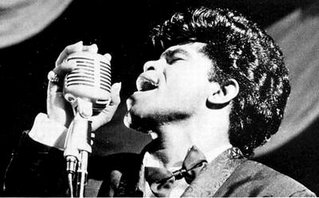James Brown, the dynamic, pompadoured "Godfather of Soul," whose rasping vocals and revolutionary rhythms made him a founder of rap, funk and disco as well, died early Monday, his agent said. He was 73. Brown was hospitalized with pneumonia at Emory Crawford Long Hospital on Sunday and died around 1:45 a.m. Monday, said his agent, Frank Copsidas of Intrigue Music. Longtime friend Charles Bobbit was by his side, he said.
Copsidas said the cause of death was uncertain. "We really don't know at this point what he died of," he said. Pete Allman, a radio personality in Las Vegas who had been friends with Brown for 15 years, credited Brown with jump-starting his career and motivating him personally and professionally. "He was a very positive person. There was no question he was the hardest working man in show business," Allman said. "I remember Mr. Brown as someone who always motivated me, got me reading the Bible."
Along with Elvis Presley, Bob Dylan and a handful of others, Brown was one of the major musical influences of the past 50 years. At least one generation idolized him, and sometimes openly copied him. His rapid- footed dancing inspired Mick Jagger and Michael Jackson among others. Songs such as David Bowie's "Fame," Prince's "Kiss," George Clinton's "Atomic Dog" and Sly and the Family Stone's "Sing a Simple Song" were clearly based on Brown's rhythms and vocal style.
If Brown's claim to the invention of soul can be challenged by fans of Ray Charles and Sam Cooke, then his rights to the genres of rap, disco and funk are beyond question. He was to rhythm and dance music what Dylan was to lyrics: the unchallenged popular innovator.
 Yep, and believe me, as a drummer, I can tell you that James Brown's tunes wrote the book on modern drumming. Every drummer (maybe exaggerating only a little bit) says his major influences are Clyde Stubblefield (James' drummer) and John Bonham (from Led Zeppelin). Put those two styles together and you've got modern rock drumming. Take the Bonham out and you've got Hip Hop and much of modern Jazz.
Yep, and believe me, as a drummer, I can tell you that James Brown's tunes wrote the book on modern drumming. Every drummer (maybe exaggerating only a little bit) says his major influences are Clyde Stubblefield (James' drummer) and John Bonham (from Led Zeppelin). Put those two styles together and you've got modern rock drumming. Take the Bonham out and you've got Hip Hop and much of modern Jazz.He redefined music across the spectrum. Really, James was the Elvis of Soul music. James was an unparalleled original. He was the Sex Machine who stayed on the scene, and still will. We'll miss you, James.


6 comments:
Here is what Billboard Magazine said of James Brown in the days following the Dr. Martin Luther King assassination - it speaks volumes on the character of Mr. Brown:
"Hail, James Brown
Billboard Magazine Editorial
April 27, 1968
Amid the looting and rioting in Washington., Brown came to the people and told a live television audience, "Get off the streets. Go home. Nothing can be gained by looting and burning, only sorrow and misery." A few hours later, those who were not at home to see Brown make an appeal, were at home watching the continuous rebroadcast of Brown’s plea. Washington and the rioters withdrew into their homes taking the advice of James Brown, who is not a politician but a singer. Brown went to Washington at his own expense just as he went to Boston and other riot torn cities..."
Thanks for leaving that Leftdog. I didn't know that.
The God-Father Of Soul performed at the festivities for President Richard M. Nixon's inauguration in 1969, and endorsed President Nixon for re-election in 1972.
Damn, I didn't know that either.
I did know Wilt Chamberlain supported Nixon, but I had no idea James did.
Very interesting.
Lionel Hampton was another very staunch African-American Republican, and I think Louis Armstrong also supported President Nixon.
In fact, the Rev. Dr. Martin Luther King, Jr., was also a Republican.
Check out:
http://www.nationalblackrepublicans.com
for their page on Dr. King, and their article on "The Ku Klux Klan Was the Terrorist Wing of the Democratic Party."
As a lifelong resident of the D.C. area, I well remember how James Brown came here in 1968 and helped to calm down the rioters.
Post a Comment